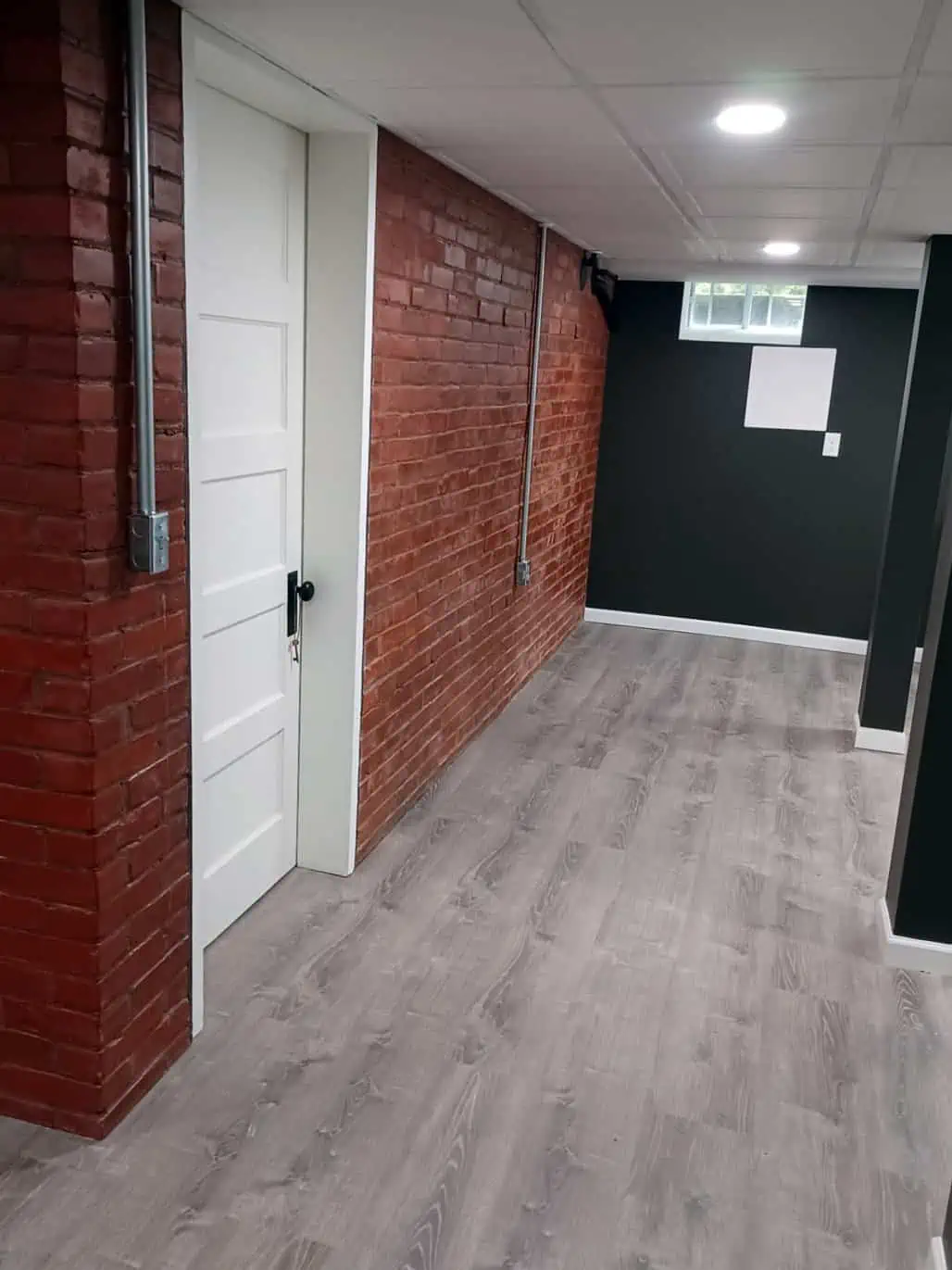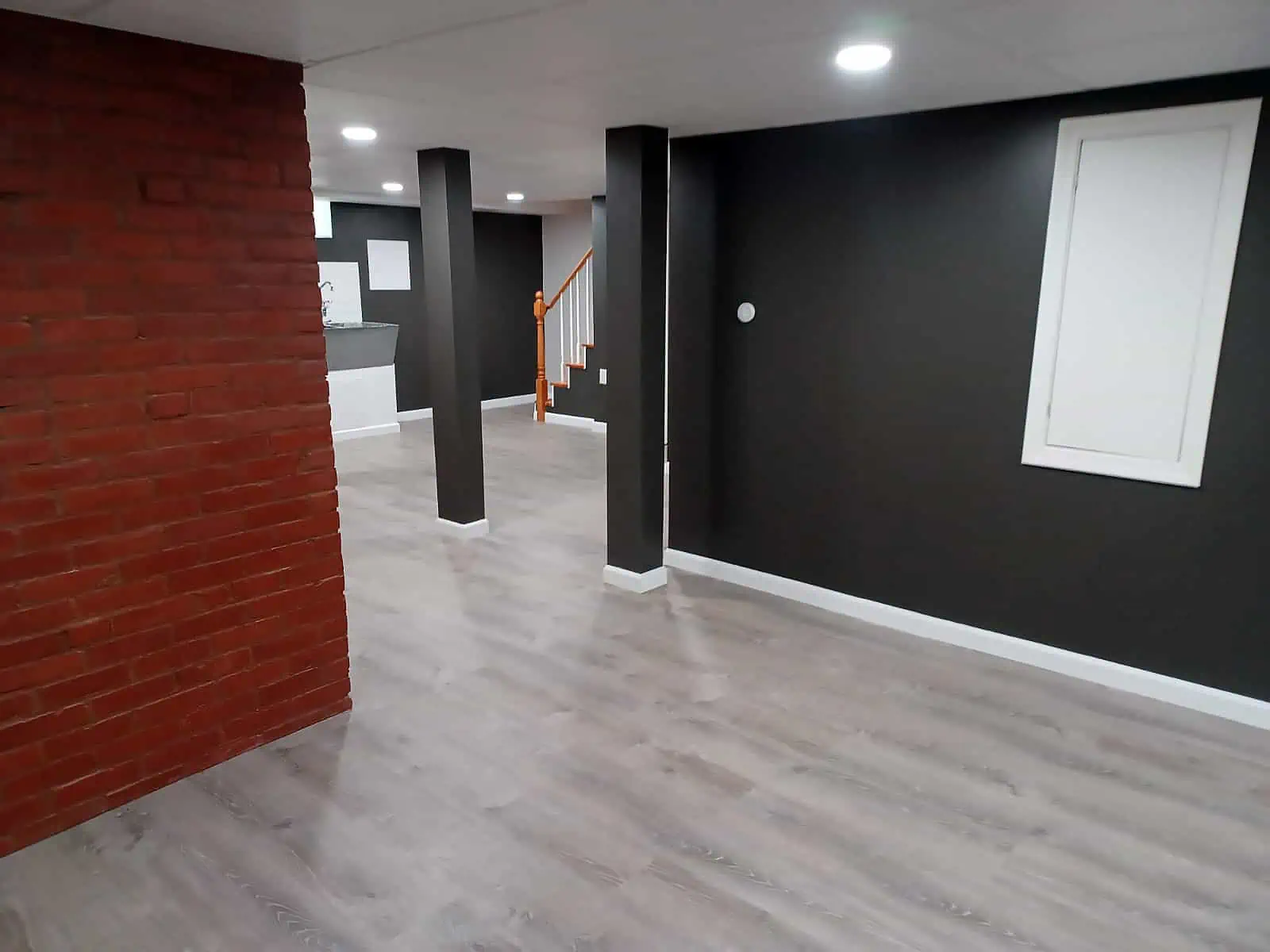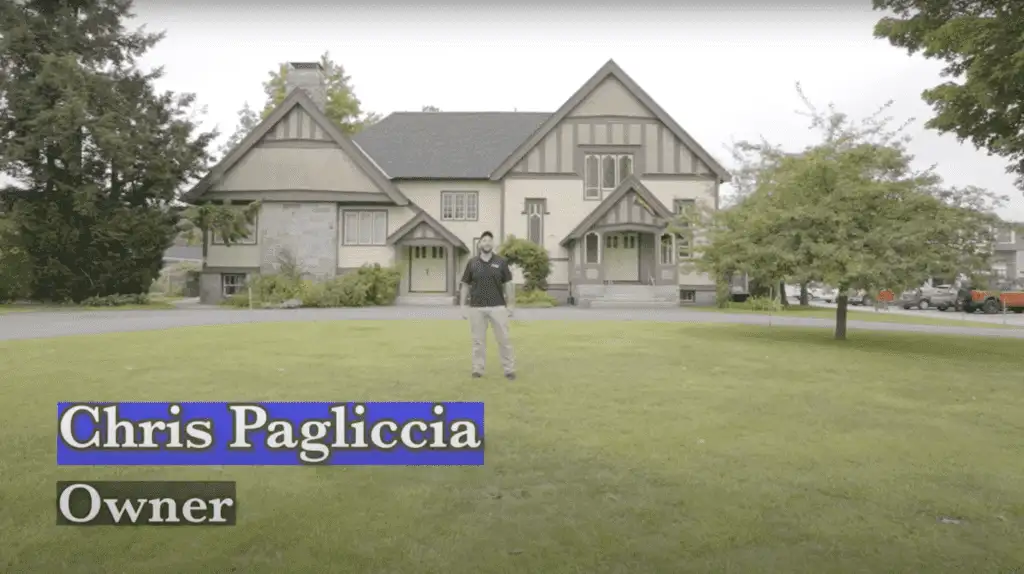Basement Finishing Windham NH
Finishing your basement can transform unused space into something practical and valuable. In Windham, NH, many homeowners are finding that a finished basement isn’t just about extra square footage—it’s an opportunity to create a space tailored to their lifestyle. Whether you’re considering a family room, home office, or even an extra bedroom, the possibilities are vast.
Real People - Real Great Results
Crawl Space Video Playlist
Why Finish Your Basement?
Let’s cut to the chase: a finished basement takes dead space and gives it a heartbeat. If you’re tired of walking past that dark, empty cavern under your feet, transforming it into something usable can be a total game-changer.
First up, usable space. Why tack on an addition to your home when you already have square footage sitting there, underutilized? A finished basement offers limitless options—family room, game room, or even that zen yoga retreat you’ve been daydreaming about—all without eating up your backyard or dealing with major new construction. It’s smart, simple, and way less invasive.
As for property value, a finished basement is like a secret weapon when selling your home. Potential buyers see finished basements as “bonus space,” and bonus space = more money. In the competitive Windham, NH real estate market, this upgrade could help your home stand out and command a higher price.
Then there’s flexibility. Life changes, and your home should be able to change with you. Whether you need a quiet corner for remote work, a cozy spot for guests, or even a small rental unit for extra income (hello, Airbnb potential), a basement can morph into whatever you need it to be. It’s not just about having more space—it’s about having the right kind of space for where you’re at now.
So, why finish your basement? In short: because it’s the low-hanging fruit of home improvements. Practical, valuable, and endlessly customizable—it just makes sense.

Essential Considerations Before Starting
Before diving into your basement finishing project, it’s essential to lay the groundwork—literally and figuratively. Rushing in without addressing foundational concerns can lead to costly hiccups down the line. Here’s what to focus on:
- Waterproofing First: Basements are notorious for moisture issues, which can quickly turn your dream space into a nightmare. Windham’s seasonal rain and snowmelt make waterproofing non-negotiable. Patch up foundation cracks, install a sump pump if necessary, and consider a vapor barrier to keep things bone-dry. Skipping this step? Be prepared for mold to invite itself in.
- Local Building Codes: Windham has specific regulations for basement projects, and ignorance isn’t bliss—it’s potential fines or a failed inspection. From ceiling height to emergency exits, ensure your plans tick all the boxes. Pro tip: Talk to local officials early. The process might seem like a hassle, but it’ll save you a bigger one later.
- Proper Insulation: Basements tend to be colder than the rest of your home, especially in New England winters. Invest in insulation that’s appropriate for below-grade spaces. Foam board or spray foam are excellent choices for combating drafts and improving energy efficiency. Rule of thumb: Warm toes = happy household.
Knock these tasks out upfront, and you’ll avoid headaches that could derail your timeline or budget. A solid start means you’re that much closer to enjoying your finished space.
Designing Your Finished Basement
Let’s face it: basements run the risk of becoming catchall dump zones or eerie afterthoughts in home design, but they don’t have to. The first step to a functional, inviting basement is deciding what you want it to be. Start with a hard look at your priorities. A home office? A game den? The cornerstone decision here will shape everything else—lighting, layout, even the vibe.
Once the purpose is locked in, address the elephant in the room: lighting. Basements are naturally darker, and while that works great for movie nights, it’s less ideal for much else. Remedy this by mixing up your light sources. Recessed lights are versatile and keep things sleek. If the room allows, larger egress or casement windows can flood the area with much-needed daylight. Can’t swing new windows? Paint, furniture, and flooring in lighter tones can still make the space feel breathable and bright.
As for layout, function dictates form. Open-concept designs work well if you’re creating a multi-use space—think gaming on one side, lounging on the other. But if you’re carving out a home office or guest room, don’t skimp on dividing zones with walls, screens, or even smartly placed furniture. Bonus tip: don’t banish all storage to the darkest corners. Intentionally dedicated storage spaces tucked into the layout will keep chaos at bay without turning your basement back into “the place where stuff goes to disappear.” Minimalist? Meet practical.

Common Upgrades for Finished Basements
Some upgrades turn a finished basement from “okay” to “outstanding.” Here’s what you should consider:
- Wet Bars or Mini Kitchens: Why walk upstairs for snacks when you can have a sleek wet bar or compact kitchen right where you need it? Whether you’re hosting movie nights or game-day parties, this upgrade is all about convenience and vibe. Go minimalist with a small fridge and sink or up the ante with built-in wine racks or a beer tap system.
- Bathrooms: Adding even a modest half-bath can save you from constant trips upstairs, but a full bathroom? That’s a game-changer—especially if you’re adding guest accommodations or a home gym where a quick post-workout shower becomes a luxury. Just remember to factor in plumbing logistics and costs before diving in.
- Egress Windows: Thinking of adding a bedroom? Then egress windows aren’t optional—they’re code. These windows not only tick the safety box but also flood your basement with natural light, making the entire space feel less, well, underground.
- Flooring Choices: Basements demand flooring that can handle moisture while still looking great. Luxury vinyl planks or tiles make excellent choices—resilient, stylish, and easy to maintain. Carpeting can work too, but stick to moisture-resistant options and consider installing a quality vapor barrier.
Tackling these upgrades isn’t just about aesthetics—they boost functionality and ensure your basement is ready for real life.
Hiring Professionals vs. DIY
When it comes to basement finishing, the question of whether to hire a professional or roll up your sleeves for a DIY approach can have a big impact on your project’s outcome. Both routes have their pros and pitfalls, so it’s crucial to assess your time, budget, and skill set before diving in.
Professional Contractors
Let’s face it—there are certain aspects of basement finishing that are best left to the pros. Structural work, plumbing, electrical wiring, and HVAC modifications all fall into this category. If you’re knocking down walls or installing systems that need to meet building codes, a certified contractor isn’t just a convenience—they’re a necessity. Professionals also offer the added benefits of experience, efficiency, and tools you likely don’t have lying around the garage. Sure, their services come with a higher price tag, but in exchange, you gain peace of mind knowing the job’s done right the first time. Not to mention, having a pro handle potential surprises—think mold, water seepage, or uneven floors—can save you from expensive headaches later.

DIY Projects
Not every part of finishing a basement requires heavy lifting or a general contractor on speed dial. Tasks like painting, assembling furniture, laying adhesive vinyl flooring, or even framing basic walls can be handled by most moderately handy homeowners. Tackling these smaller elements yourself can shave a decent chunk off labor costs and give you a sense of ownership over the finished product. That said, DIY has its limits. Misjudging what you think you can handle versus what reality demands can lead to costly mistakes. Know when to call for help—it’s easier (and cheaper) to involve a pro mid-project than to fix a botched job later.
The Hybrid Approach
For many Windham, NH homeowners, the sweet spot lies somewhere in between. Hire professionals for complex systems like electrical and plumbing, then take on design and finishing touches yourself. This strategy lets you focus your efforts where they’ll make the most visible impact, without compromising on safety or functionality. Ultimately, whether you go pro, DIY, or a mix of both, basement finishing isn’t about cutting corners—it’s about finding a balance that works for your skills, resources, and vision.
Challenges to Be Ready For
Let’s call it how it is: finishing a basement isn’t all smooth sailing. Expect a few curveballs—and trust us, you’re better off bracing for them now than being blindsided mid-project.
- Hidden Issues: Basements are notorious for concealing problems until you start poking around. Think outdated wiring that’s more fire hazard than functional or foundation cracks that hint at bigger structural dilemmas. In older Windham homes, these surprises aren’t uncommon. Bring in a professional to inspect before swinging that first hammer.
- Moisture Misery: Basements and water are like old frenemies—they’re always finding ways to reconnect. Even if it looks dry now, you might discover mold, seepage, or drainage nightmares once renovations kick off. Waterproofing isn’t optional. Deal with leaks and invest in a solid sump pump or perimeter drain system if needed.
- Budget Overruns: No matter how meticulously you plan, projects like this have a sneaky way of inflating costs. Maybe you fall for premium flooring, or that “simple” rewiring ends up involving half your electrical panel. Save yourself the stress: build in a 10-20% buffer for unexpected surprises.
- Limited Ceiling Height: Some older basements don’t exactly boast cathedral ceilings. If ductwork, pipes, or beams are crowding your headspace, you might need to plan for creative rerouting or embrace lower-clearance solutions.
- Permitting & Delays: Windham’s building codes and inspections can eat up more time than you expect. Applying for permits and waiting for approval isn’t the fastest process, and skipping it isn’t an option unless you want trouble down the line.
Bottom line? Challenges don’t mean “don’t do it”—they just mean “be ready.” Knowing the hurdles ahead keeps you in control, so you can tackle problems head-on and still end up with the basement you envisioned.
Final Thoughts
An unfinished basement is more than just wasted square footage—it’s untapped potential. Done right, it can elevate your home, adding a layer of practicality and even luxury to your Windham, NH property. But it’s not a realm suited for cutting corners. Take the time to assess your needs, tackle foundational concerns like waterproofing, and visualize a design that flows with the rest of your home’s character. This isn’t just about finishing a space; it’s about creating one that lasts, that works for you, and that you’re proud to call your own. With smart planning and execution, your basement can be more than extra space—it can be a cornerstone of your home’s future.
Reviews from Happy Customers
Our top priority is customer satisfaction, and we work closely with clients to understand their unique needs and goals.






